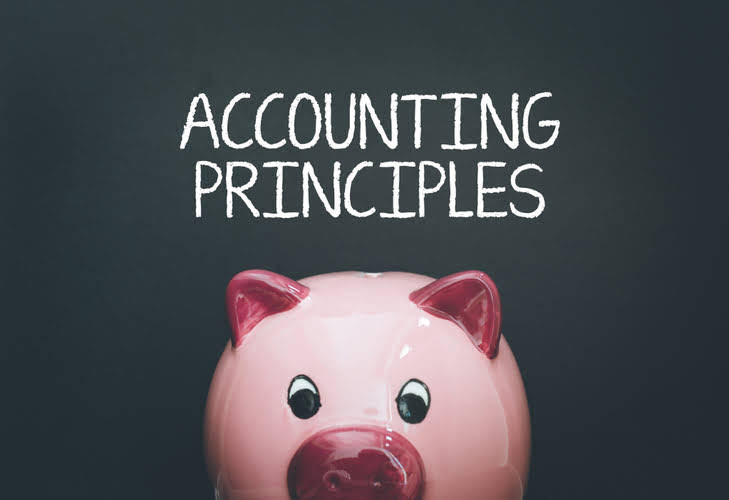Top Reading
The tags are about gender and you can needs about rooms, with unusual outliers particularly ‘BBC’ and ‘Music’
todayJune 26, 2023
Perhaps you want a long lasting relationships — or simply a trips pal
todayJune 20, 2023
Which is most likely while the Vancouver Area’s inlets, songs, rocky countries, and you may 6,000-to-eight,000-feet peaks is actually secured in the heavy temperature rain forest
todayMarch 30, 2023
Most Upvoted
Content
- What is accounts receivable factoring?
- Triumph Business Capital
- You’ll have lower credit risk
- Step 4: Completion of final payment to the seller
- How to Choose the Best Factoring Company
- reasons to use AR factoring
- Accounts Receivable Factoring
- Accounts Receivable Factoring: What is Factoring Receivables?

Then the factoring company collects money from the customer over the next 30 to 90 days. With maturity factoring, the factor advances payment on the invoice and collects payments from the seller as the invoice matures. This is the least common type of factoring and is typically reserved for long-term invoices and large contracts. Similar to a business line of credit, factoring receivables gives your business access to a credit line, too. Although factoring receivables sounds similar to accounts receivable financing, the two aren’t the same thing. The average cost of factoring receivables is around 1% to 5% of the total invoice amount, depending on a number of variables such as credit score and the total number of invoices to be paid.
- It is mostly 8–10% of the total amount which the factoring company keeps as a deposit.
- The longer it takes time to collect the accounts receivables, the more difficult it is for a business to run its operations.
- The transaction takes place between a business (the borrower) and a lender (often a factoring company as opposed to a traditional commercial bank).
- Factoring expense typically include the factor’s fees between 0.5% and 3% of a receivable plus interest on the capital advance, typically at prime rate plus 2% or more percent annual.
Factoring your accounts receivables means that you actually sell them, as opposed to pledging them as collateral, to a factoring company. The factoring company gives you an advance payment for accounts you would have to wait on for payment. The advance payment is usually 70% to 90% of the total value of the receivables. After charging a small fee to the company, usually 2% or 3%, the remaining balance is paid after the full balance is paid to the factor. Riviera Finance is a leading accounts receivable factoring company for more than 50 years and has helped many business owners with payroll funding and cash flow issues.
What is accounts receivable factoring?
AR factoring is simple and requires a freight bill or invoice and verification of services. Improve your company’s financial condition by increasing the working capital that you can invest back into your business. To sum up, if you need to get yourself out of a cash crunch, using a more modern solution (i.e. Resolve) to an accounts receivable factoring company is a practical option.
With traditional invoice factoring, also known as notification factoring, the business’s clients are made aware that their invoice has been sold to an accounts receivable factoring company. Clients continue making payments to the business just as before, but the factoring company is actually the one handling the transactions. With factoring receivables, a factoring company purchases your unpaid invoices and pays you a portion of the invoice value upfront. The advance rate varies depending on the company, but generally ranges from 75% to 100% — or the full invoice amount — minus fees. Businesses need cash to stay afloat, and sometimes cash just doesn’t come in fast enough. Factoring is a type of financing that uses a company’s accounts receivables.
Triumph Business Capital
After you submit all the invoices to the factoring company, they verify the details and make sure the invoice qualifies for factoring. In most cases, the company advances 80 to 95 percent of the factored amount on the day of invoice submission itself. The discounted rates at which the factoring company https://www.bookstime.com/articles/accounts-receivable-factoring buys the receivables can go up to 4% and can come down to even 1%, depending on the factors mentioned above. The buyer (called the “factor”) collects payment on the receivables from the company’s customers. First, factoring companies typically pay most of the value of the invoice in advance.
What are the disadvantages of factoring?
- The cost will mean a reduction in your profit margin on each order or service fulfilment.
- It may reduce the scope for other borrowing – book debts will not be available as security.
After receiving payment in full, the factoring company clears the remaining balance, typically 1-3%, to the selling company. The factoring company makes a profit by collecting on the full amount of the invoice. Once a selling organization submits its invoices, the factor will verify details and ensure the invoices qualify (more on that in a moment). In most transactions, the factoring company advances % of the factored amount the day the invoice is submitted.
You’ll have lower credit risk
In non-recourse factoring, the factoring company assumes the risk of customer non-payment. Available to startups as well as established companies, Riviera Finance provides funding within 24 hours after invoices are verified. It offers non-recourse factoring and cash advance amounts up to 95% of the invoiced amount. Regular factoring usually involves selling a batch of unpaid invoices all at once.

Accounts receivable factoring is a way of financing your business by selling unpaid invoices for cash advances. A factoring company pays you a large percentage of the outstanding invoice amount, follows up with your customer for payment, then pays you the remainder of what you’re owed, minus fees. AR factoring (also known as debt factoring) also uses your unpaid invoices as collateral to secure the loan.
Step 4: Completion of final payment to the seller
The factoring company then pays you a percentage of the invoice value and collects payment directly from your customer. Often, as mentioned previously, the finance company will take on the responsibility of customer credit dues. However, if https://www.bookstime.com/ enough customers don’t pay their invoices, your small business can be held accountable for the factoring company’s lost fees. This is not true in the case of a nonrecourse exchange, as the financing company assumes the nonpayment risk.

Non-recourse factoring carries a higher risk and is generally used less frequently. With it, the factor takes responsibility for the invoice, even if they are unable to collect. Often, non-recourse factoring is only applied if the invoiced company files bankruptcy. In addition, fees for non-recourse factoring are much higher than those for recourse factoring. Businesses can transform their accounts receivable process and turn unpaid invoices into immediate cash through AR factoring.
How to Choose the Best Factoring Company
Many or all of the products featured here are from our partners who compensate us. This influences which products we write about and where and how the product appears on a page. Factoring, on the other hand, often has very few restrictions on the uses of loan proceeds. This flexibility is another reason many borrowers might be willing to pay a premium.

Unless otherwise, the factor will follow up on payments and collect the cash from your client. The accounts receivable lender, or factoring company, assumes the risk on your outstanding receivables, and in return, grants you an influx of cash to be used to achieve your business goals. Any money you receive in exchange for your business’s unpaid invoices will help your company become more flexible.
Our best expert advice on how to grow your business — from attracting new customers to keeping existing customers happy and having the capital to do it. Just as in most business and investment transactions, the higher the risk, the higher the interest rate. Factoring companies may require businesses to have been in business for a certain amount of time and have a minimum amount of monthly or annual revenue. This means it bridges a borrower’s working capital funding gap; it would usually be frowned upon (or even restricted) to use the proceeds to fund a dividend, for example. Alternately, Capital Partners Network can help, providing you the experience and expertise to help better identify your particular requirements and matching your business with the right lender.
The business benefits of accounts receivable factoring are obvious but it’s worth diving into the finer details of factoring to make sure your business is getting the best deal. Small business owners receive funds based on the values of their unpaid invoices, and after they’re paid, those owners then pay the lenders back, plus any fees. However, while receivables factoring can be beneficial in the short-term, there are long-term costs to consider. You pay fees ranging from 1% to 5% for the service, even if the receivable is paid in full within days. Payment guarantees aren’t always available, and if they are, they can double the fees to as high as 10%.
Written by: admin
Previous post
labelCryptocurrency exchange todayAugust 12, 2021
Pundi X Price Analysis: NPXS Price Breaks Above The Resistance
Content General Bytes Loses $1.5M in Bitcoin Due to Security Hitch How Do I Log In To My CoinGecko Account? Social Media is Changing the Face of the Beauty Industry Can give you the peace of mind of added security [...]
Similar posts
labelBookkeeping todayJune 13, 2023
remote accounting services, accounting and bookkeeping jobs, accounts outsourcing, ras support, quickbooks online bookkeeping services, accounting outsourcing companies, part time telecommuting, accounting jobs, accounting firms outsourcing, home bookkeeping jobs, accounting positions available, financial accounting positions, accounting contract work from home, cisco telecommuting jobs, accounting jobs online work from home, writing telecommuting jobs, bookkeeping vacancies, part time accounting positions, telecommuting social work jobs, accounts writing work from home on internet, weekend bookkeeping jobs, evening bookkeeping jobs, accounting positions list, specific services, part time accounting jobs for students, available accounting jobs, cpa outsourcing, global provider, accounting outsourcing companies in india, part time accounting jobs online, remote desktop account, remote access to outlook email account, the connection was denied because the user account is not authorized for remote login, remote accounting solutions, remote accounting positions, part time remote accounting jobs, telecommuting accounting jobs, part time bookkeeper from home, accounting and bookkeeping services, ras client tool, virtual accounting services, accounting bookkeeping services, bookkeeping website, virtual bookkeeping services, remote quality bookkeeping, ras login, outsourcing bookkeeping services, quickbooks bookkeeping services, remote bookkeeping services, virtual bookkeeping business, remoteaccounting com, freelance bookkeeping jobs from home, cpa work from home jobs, part time accounting jobs from home, virtual bookkeeping jobs from home, accounts, receivable outsourcing, telecommuting bookkeeping jobs, part time bookkeeping jobs from home, types of accounting positions, f&a outsourcing, account outsourcing group, stay at home accounting jobs, flexible accounting jobs, finance and accounting outsourcing, entry level accounting positions, accounting positions titles, accountant work from home, outsourced accounting firms, bookkeeping outsourcing, telecommuting jobs for social workers, sap telecommuting jobs, bookkeeper part time, telecommuting research jobs, work at home bookkeeping jobs, work from home payroll jobs, online bookkeeping jobs at home, bookkeeping part time jobs, telecommuting jobs phoenix, virtual accounting jobs at home, information technology telecommute jobs, remote bookkeeper wanted, at home bookkeeping jobs, airline telecommuting jobs, telecommuting jobs in nj, high-speed internet access, information technology services, communication infrastructure, telecommunications services, communications services, staff accountant positions, broadband internet access, automated teller machines, telecommunication services, backops jobs, jobs in accounting field, freelance bookkeeping jobs, accounting job with no experience, accounting jobs telecommute, accounts payable outsourcing, careers in accounting and finance, billing outsourcing, part time cpa, telecommuting data entry jobs, telecommunication networks, remote desktop microsoft account, account is not authorized for remote login, user account not authorized for remote login, remote accounting careers, remote cpa jobs, bookkeeping remote jobs, ras tool, ras tools, quality bookkeeping, rqb, outsourced bookkeeping services, bookkeeper needed, part time cpa jobs, part time bookkeeping jobs, accounting telecommute, telecommuting jobs nj, accounting work from home, work from home accountant, accounting jobs indeed, social work telecommuting jobs, telecommuting it jobs, telecommuting jobs in ct, infrastructure services, large enterprises, network access, banking facilities, telephone services, telephone networks, common services, telecommunication companies, management services, dial-up access, telecommuting companies, business customers, remote accounting, remote accountant, remote bookkeeping, virtual bookkeeping jobs, indeed accounting jobs, work from home accounting jobs, bookkeeper services, bookkeeping firms, bookkeeping websites, virtual bookkeepers, virtual accountant, book keeping services, remote bookkeeping jobs, part time accounting jobs, virtual bookkeeper jobs, part-time bookkeeper, backops, accounting jobs working from home, part-time accounting jobs from home, it telecommuting jobs, google telecommuting jobs, telecommuting jobs craigslist, high paying, telecommuting jobs, telecommuting jobs nyc, communication services, data centres, associated services, asset tracking, private clouds, logistics services, leased lines, jr accountant, data communications, contact centers, centralized management, payment services, voice services, ip telephony, banking services, telephone banking, outsourcing services, back-office, central management, data centre, remote management, integrated platform, broadband services, maintenance services, user account is not authorized for remote login, remote accounting jobs, virtual bookkeeper, virtual accounting, bookkeeping service, virtual accounting jobs, full charge bookkeeper, accounting positions near me, remote monitoring, software services, telecom services, retail services, travel services, data services, data service, voip services, internet connectivity, technology services, insurance services, wireless services, advisory services, software solutions, integrated services, enterprise systems, virtual bookkeeping, security solutions, network services, it solutions, payment processing, network infrastructure, mobile device management, call centers, wireless service, datacom, professional services, access services, mobile data, remote access software, accounting services, managed services, business services, fleet management, computer services, advanced services, wireless lan, collocation, vsat, bookkeeping services, it services, secure access, ancillary services, cloud services, telecommuting jobs, printing services, scada, accounting software, broadband, online banking, remote, web hosting, satellite internet
Content Everything You Need to Work from Home as an Accountant Some Benefits of Fully Remote Accounting Jobs for Employees A Day In The Life: Sam Card, Virtual Bookkeeper Next PostTradeshift Go Review: How to Supercharge Your American Express Business Credit Card Our Locations How to switch off your bookkeeping business for the holidays And [...]
labelBookkeeping todayJune 2, 2023
Why does the value of a stock depend on dividends? A substantial percentage of the companies listed on the NYSE and NASDAQ do not pay dividends, but investors are nonetheless willing to buy shares in Homework Study.com
However, companies can also offer their stakeholders a buyback option as well; which typically means it repurchases the shares by initiating a buyback program to simply reduce the number of stocks it has on the market. Share repurchases usually increase earnings-per-share (EPS), and cash-flow-per-share, and improve performance measures like return on equity. The long-term capital [...]




Post comments (0)